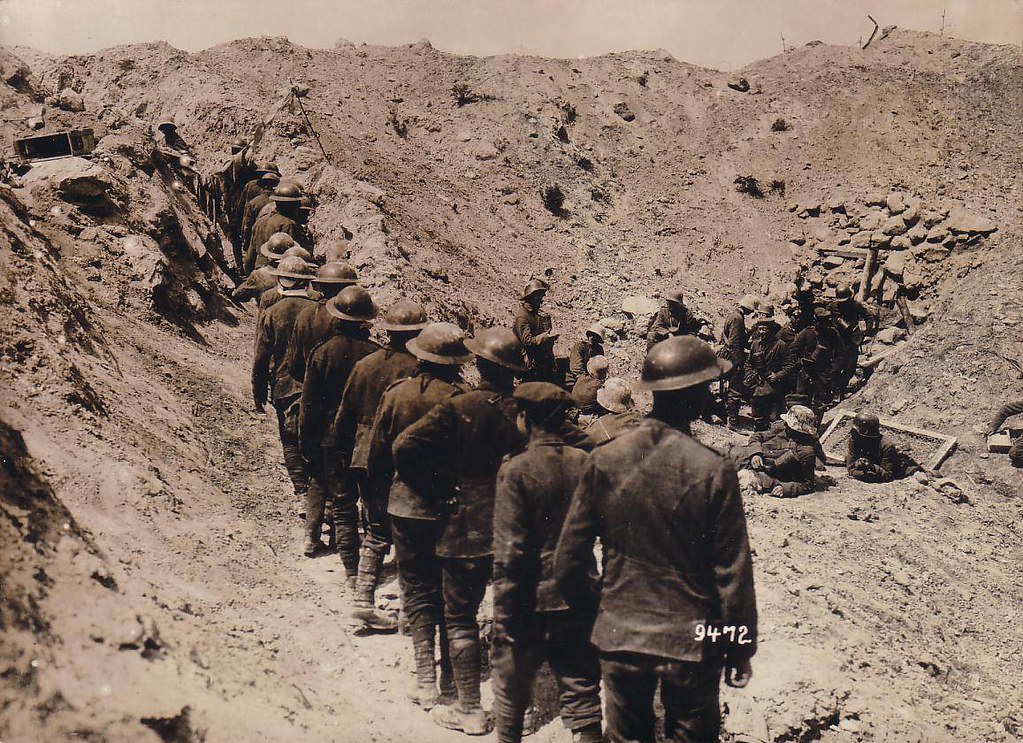During the sombre days between November 11 and Remembrance Sunday, the nation will pause and slow down and remember those who have given their life and mind to the many conflicts Britain has had the misfortune of partaking in. First World War poetry holds some of the most powerful, striking words ever written on the war.
Of little words written hurriedly by unassuming men on blood-stained paper in between the shells and the guns
MM has collected a list of the best war poetry to sift through and give oneself an insight into the brutality and morbid romance of the supposed ‘Great War.’
Siegfried Sassoon – Blighters
I’d like to see a tank come down the stalls
Lurching to rag-time tunes, “or Home, sweet Home”
And there’d be no more jokes in Music Halls
To mock the riddled corpses round Bapaume.
The war poet, Siegfried Sassoon, who served in the Royal Welsh Fusiliers in France, wrote this little known poem in 1917. It is Sassoon at his most cynical, a poem that snarls and hisses at the establishment.
It was this establishment that Sassoon built up a hatred for during his time on the Western Front.
After being wounded in action, Sassoon penned the now iconic letter to the War Department. It read, “I believe that this war is being deliberately prolonged by those who have the power to end it.”
He surprisingly managed to escape a court martial for such blasphemy and by 1917 was sent back to Britain and hospitalised for shell shock.
Sassoon is unique in the band of war poets for he portrayed the war in the truest light. No truer than in this poem. Not one of cheering and singing round the Union Jack and a portrait of the King but more the horrors of trench warfare and the stark hypocrisy between the image of war shown to those at home and the real face of the war confronted by the men in battle.
Wilfred Owen – Anthem for Doomed Youth
What candles may be held to speed them all?
Not in the hands of boys, but in their eyes
Shall shine the holy glimmers of goodbyes.
Wilfred Owen was one of Britain’s finest poets of the First World War. A close friend of Sassoon’s, Owen also served on the Western Front.
Unlike Sassoon, Owen takes a softer pen to the mechanised atrocities of the war as shown in this poem of 1917 – portraying the soldiers almost as boys, frail boys crying for their mothers during the midst of battle.
Written during his time spent at Craiglockhart War Hospital as he recovered from shellshock, the poem details the all-too-familiar funeral processions of the dead and laments how the war savagely turned men into boys.
Owen was killed in action on November 4 1918, one week before the signing of the Armistice. The legend goes that Owen’s mother received news of her son’s death on Armistice Day, just as the country erupted into jubilation after four years of war.
 “British POW WWI Western Front” by Jens-Olaf is licensed under CC BY-NC-ND 2.0
“British POW WWI Western Front” by Jens-Olaf is licensed under CC BY-NC-ND 2.0
Gerrit Engelke – To the Soldiers of the Great War
And you? – were your feelings so unlike mine?
Tear open your tunic! Let’s see your bare skin;
I know that old scar from 1915,
And there on your forehead the stitched-up gash.
But so you won’t think my pain is less,
I open my shirt, here’s my discoloured arm.
Aren’t we proud of our wounds, your wounds and mine?
Contrary to what the British propaganda at the time said, there were still human voices on the other side of the parapet. The Germans of the war were not ‘barbaric huns’, they were frightened men not too dissimilar to the Brits.
This was the theme German soldier and poet, Gerrit Engelke tried to show through his poems of the war.
He was sometimes dubbed the German Wilfred Owen. Both joined the war bright-eyed and eager. Both swiftly turned against the war and urged men of both sides to say a farewell to arms. Both raged against national pride. Both were to die very soon before the signing of the Armistice.
Ironically, Engelke, a poet who tried to talk of sympathy with the British soldier and tried to wriggle out of his German uniform through prose actually died in a British Field Hospital in October 1918.
Isaac Rosenberg – Break of Day in the Trenches
Only a live thing leaps my hand,
A queer sardonic rat,
As I pull the parapet’s poppy
To stick behind my ear.
Droll rat, they would shoot you if they knew
Your cosmopolitan sympathies.
Now you have touched this English hand
You will do the same to a German
A poet, artists and solider of The Great War, Isaac Rosenberg was a talented bloke in the trenches.
Break of Day in the Trenches is widely regarded his finest work of the war, written in 1916.
This poem shows the monotonous routine of war in the trenches and it’s ending is rather suitable for the centenary of the poppy as a mark of remembrance.
Rosenberg ends the poem describing the poppy “whose roots are in man’s veins.”
Maybe out of insanity, Rosenberg argues with a rat in this poem, warning the rat it would be shot for its “cosmopolitan sympathies.”
Rosenberg fell in the French town of Fampoux in April 1918 in the midst of the German Spring Offensive.
Today we may not have to pull a poppy from the mud of Flanders to stick behind our ear. Instead we pin one tightly to our lapels or collar.
But the principle remains as vivid and bright as it did for Rosenberg, Sassoon, Owen and the other war poets all those years ago. The pilgrimage to a war memorial every year, joined by fellow pals doing the same, is an important routine. One that shall not fade with the passage of time.


